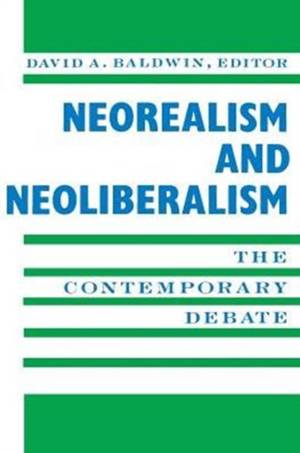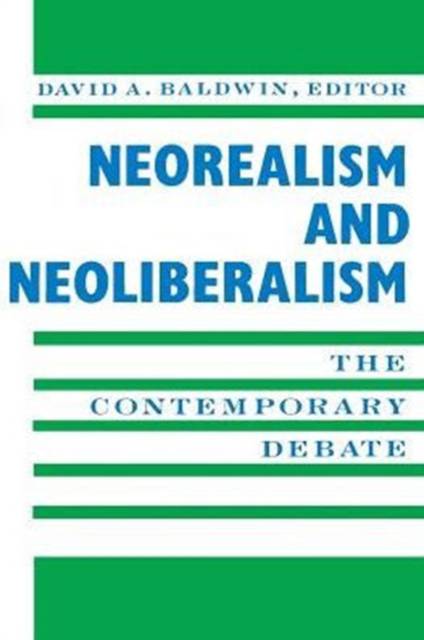
Je cadeautjes zeker op tijd in huis hebben voor de feestdagen? Kom langs in onze winkels en vind het perfecte geschenk!
- Afhalen na 1 uur in een winkel met voorraad
- Gratis thuislevering in België vanaf € 30
- Ruim aanbod met 7 miljoen producten
Je cadeautjes zeker op tijd in huis hebben voor de feestdagen? Kom langs in onze winkels en vind het perfecte geschenk!
- Afhalen na 1 uur in een winkel met voorraad
- Gratis thuislevering in België vanaf € 30
- Ruim aanbod met 7 miljoen producten
Zoeken
Neorealism and Neoliberalism
The Contemporary Debate
€ 71,45
+ 142 punten
Omschrijving
In light of the recent demise of the Soviet Union and the subsequent withdrawal of Soviet forces from Central Europe, the debate between neoliberal institutionalism and neorealism has taken on a new relevance. Neorealism and Neoliberalism concentrates on issues of conflict and cooperation with their implications for post-Cold War international relations.
Essays by some of today's most prominent political theorists debate the importance of anarchy versus the importance of interdependence in determining state behavior; the feasibility of international cooperation; the impotance of absolute gains versus relative gains as incentive for cooperation; the trade-offs between economic welfare and military security; the importance of state intentions versus state power; and the significance of the emergence of numerous international regimes and institutions. The collection features: -An introduction by David A. Baldwin; -Robert O. Keohane on the realist challenge after the Cold War; -Joseph M. Grieco on relative gains and the limits of cooperation; -Helen Milner on anarchy in international relations theory; -Stephen Krasner on national power and international cooperation; -Charles Lipson on international cooperation in economic and security affairs. Cutting to the heart of the debate over the possibility of a "new world order," Baldwin's collection is essential reading for anyone seeking to understand the post-Cold War world.Specificaties
Betrokkenen
- Uitgeverij:
Inhoud
- Aantal bladzijden:
- 375
- Taal:
- Engels
- Reeks:
Eigenschappen
- Productcode (EAN):
- 9780231084413
- Verschijningsdatum:
- 2/12/1993
- Uitvoering:
- Paperback
- Formaat:
- Trade paperback (VS)
- Afmetingen:
- 152 mm x 226 mm
- Gewicht:
- 521 g

Alleen bij Standaard Boekhandel
+ 142 punten op je klantenkaart van Standaard Boekhandel
Beoordelingen
We publiceren alleen reviews die voldoen aan de voorwaarden voor reviews. Bekijk onze voorwaarden voor reviews.








